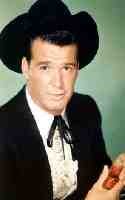The national discussion about the revelation that author James Frey’s memoir “A Million Little Pieces” contained a lot of details that were not true even though the book was presented and sold as non-fiction has been very interesting. Oprah Winfrey, whose recommendation made the book a great success, initially took the position that it did not matter whether the book was actually true or not. She said that the book’s ability to move and inspire its readers was more important than its historical accuracy and that it had, in fact, been an inspiration to thousands of readers.
Oprah received a lot of criticism for this. It was pointed out that a great deal of the power and appeal of Frey’s story was based on the reader’s perception that it was true. A true story of personal redemption and perseverance is much more powerful and moving than a fictional one. The readers who had been moved by Frey’s story because they thought it was true had been deceived and manipulated.
After a few weeks Oprah changed her mind and apologized to her viewers for having recommended the book and for having left the impression that “the truth does not matter” when she defending the book’s “underlying message.” She confronted Frey on national television. "To me, a memoir means it's the truth of your life as you know it to be and not blatant fictionalization," She told Frey "I feel that you conned us all.”
From the media coverage it appears to me that there is a consensus that truth does matter. If a story which people believe to be true turns out to be fiction this should change how people feel about and relate to the story. If people had recommended the book they should revisit that recommendation. If they based arguments, scientific theories, philosophies or their personal religion on the truth of the story they may need to reevaluate those arguments and everything based on them, perhaps a total revolution in their mental life
Everyone seems to agree with this view of things, at least in regard to Frey’s book. It has only been out a few years and that is not enough time for people to have incorporated the book’s message too deeply into their world view and personal philosophy. But if truth matters this must also be true of stories which people have believed to be true for a very long time. It would be true even of the stories which form the basis of major world religions.
If archeological research shows that there were no grand buildings in Jerusalem at the time the Bible says King Solomon built a magnificent temple there then Jews, Christians and Muslims should not be allowed to get away with saying that this does not matter, it is the “underlying message” which is important, should they?
If archeological research shows that the city of Nazareth did not exist at the time the Bible says Jesus lived there should not all Christians who had believed in the humanity of Jesus reevaluate their relationship to their religion? Christianity won out against rival religions because it claimed a unique advantage. Its godman, Jesus, had supposedly actually come down and dwelt among us here on earth. If it now appears that this story is fiction should it be acceptable for people to respond to that by saying that Christianity is so fundamental to their belief system that they cannot deal with any challenge to it?
Explore the evidence for whether or not Christianity started with a historical Jesus here
Saturday, January 28, 2006
Subscribe to:
Post Comments (Atom)



4 comments:
Well, here's a dissenting view. I don't think it matters one whit whether Frey's story is true. The fact is that the controversy is about celebrity, not honesty. See, http://www.dreamantilles.blogspot.com
Well, anonymous, I guess I am having a hard time getting my mind around your position. In your view what should determine whether a book is labeled "non-fiction" or "fiction?" Should the labels be dropped, should the designation be an artistic decision made by the book cover designer or what?
It's wrong to label "fiction" as "non-fiction," though I would submit that fiction can be more true than non-fiction because it can get at deeper truthes that non-fiction can never know.
Your take on the historical Jesus is pretty far off the mark. A little bit of knowlege is a dangerous thing in the hands of somebody who doesn't know what to do with it, isn't it?
Well, m, since you don't tell me very much about your knowledge of the historical Jesus I don't know just how dangerous your little bit of knowledge is, do I?
Post a Comment